
Rhode Island’s cultural diversity is one of our great assets, but our communities often experience different opportunities to engage and enjoy. If we want our state to be more equitable, we require courageous leadership and intentional investments in racial and economic equity and access.
As organizations committed to racial justice, we feel the issue of race has been missing from the discussion about Kennedy Plaza. We all want to see vibrant community commons that support our economic and community development. But we recognize that strategies like increased policing will continue to disadvantage the poor, especially people of color, and siphon dollars away from social safety net programs that uplift those most marginalized.
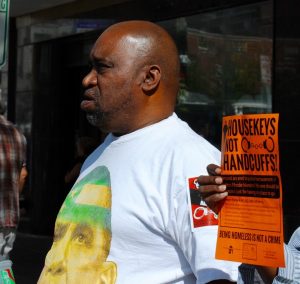 New England communities were built with public “commons,” but despite their name these public spaces have always excluded the most disenfranchised: the indigenous people whose land was stolen, the enslaved Africans who quite literally built our communities, and those who did not fit society’s image of proper decorum. This continues today, with increase policing and criminalization of black and brown bodies, those exhibiting impact of addiction or mental illness, and the poor and homeless.
New England communities were built with public “commons,” but despite their name these public spaces have always excluded the most disenfranchised: the indigenous people whose land was stolen, the enslaved Africans who quite literally built our communities, and those who did not fit society’s image of proper decorum. This continues today, with increase policing and criminalization of black and brown bodies, those exhibiting impact of addiction or mental illness, and the poor and homeless.
As our allies who are advocating for the homeless pointed out in their excellent “Reclaiming our Public Spaces” report, we cannot simply sweep away the poverty that many don’t want to see. Poverty and homelessness have disproportionate impact on communities of color, in large part because of public policies that exclude particular racial and ethnic groups from the supports that help build wealth and economic stability. Public policies fit together like bricks to shape our society, and our vision for racial justice requires some shifts in thinking. More people with criminal records, out of our workforce and warehoused at public cost, doesn’t help us build the society we envision.
Rather than seeking to invest our resources in short-sighted efforts to remove people we have deemed “undesirable,” let’s make real investments in the type of community supports and assets that eliminate the need for panhandling, support mental health and addiction recovery, and provide living wage jobs for everyone, including those with criminal records. Let’s engage our business community support in increased wages, publicly funded detox and recovery support, development of affordable housing, and compliance with First Source and Ban the Box laws. Let’s provide meaningful, well-paying work opportunities for adults with moderate education, and support public access to skilled training and higher education for our youth. Let’s recognize that amenities like public restrooms, drinking fountains, increased seating, and charging stations will support many types of users. And let’s bring love and compassion to the struggle of all those in our community, even those whose circumstances or behavior might make us uncomfortable.
Mike Araujo, Executive Director, Rhode Island Jobs with Justice
James Vincent, President, NAACP Providence Branch
Chanda Womack, President, Board of Directors, Cambodian Society of Rhode Island
On behalf of the Racial Justice Coalition.
]]> New Census data show that the percentage of uninsured Rhode Islanders was 5.7 percent in 2015, half the rate it was in 2013, the year before the Affordable Care Act (ACA) went into effect. In 2014, 7.4 percent were uninsured.
New Census data show that the percentage of uninsured Rhode Islanders was 5.7 percent in 2015, half the rate it was in 2013, the year before the Affordable Care Act (ACA) went into effect. In 2014, 7.4 percent were uninsured.
Two new avenues for affordable health insurance made available through the ACA have helped significant numbers of Rhode Islanders gain coverage. First, new Medicaid eligibility for adults (Medicaid expansion) allowed around 60,000 single adults with income marginally above the poverty line to have health insurance coverage.
Second, the new state exchange, HealthSourceRI, provided a pathway to coverage for another 35,000 Rhode Islanders who purchase private insurance. Almost 90 percent of enrollees, those with income below four times the poverty level, quality for federal tax credits to help pay their monthly premium. The majority of enrollees (60 percent) have income below two and half times the poverty level ($29,000) and also receive assistance paying for out of pocket costs including co-pays and deductibles. (Source: HealthSourceRI, Open Enrollment 2016)
According to the Rhode Island Annual Medicaid Expenditure Report for SFY 2015, the federal/state Medicaid program provides health insurance to one in four Rhode Islanders. In addition to the 60,000 newly eligible single adults, 150,000 children and families with lower income and 12,000 children with special health care needs have comprehensive insurance through Medicaid. Seniors (19,000) and people with disabilities (32,000) rely on Medicaid for the services they need to live safely in the community or in a facility when home-based care is not feasible.
 “Rhode Islanders should be proud that we are 7th in the nation for the percent of residents who have health insurance coverage”, said Linda Katz, Policy Director at the Economic Progress Institute. “With health insurance, people are more likely to keep up with yearly preventive care visits and people with chronic conditions can get the treatment they need to promote their well-being. Besides the obvious benefits for families and individuals, having a healthy work force is a good selling point for our state. Medicaid and coverage through HealthSourceRI are vital to ensuring that thousands of our residents can afford comprehensive health insurance.”
“Rhode Islanders should be proud that we are 7th in the nation for the percent of residents who have health insurance coverage”, said Linda Katz, Policy Director at the Economic Progress Institute. “With health insurance, people are more likely to keep up with yearly preventive care visits and people with chronic conditions can get the treatment they need to promote their well-being. Besides the obvious benefits for families and individuals, having a healthy work force is a good selling point for our state. Medicaid and coverage through HealthSourceRI are vital to ensuring that thousands of our residents can afford comprehensive health insurance.”
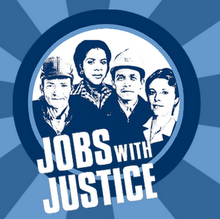 After years of struggle the Rhode Island General Assembly under the leadership of Senator Donna Nesslebush, and Representative Joe Shekarchi have passed a bill that finally makes the scourge of wage theft a crime. Stealing workers’ wages has always been civil offense with serious hurdles from the bureaucracies that were supposed to help. With close consultation with the DLT and Director Scott Jensen and legislative stakeholder meetings, House Bill 7628 and Senate Bill 2475 passed in the small morning hours on Saturday June 18.
After years of struggle the Rhode Island General Assembly under the leadership of Senator Donna Nesslebush, and Representative Joe Shekarchi have passed a bill that finally makes the scourge of wage theft a crime. Stealing workers’ wages has always been civil offense with serious hurdles from the bureaucracies that were supposed to help. With close consultation with the DLT and Director Scott Jensen and legislative stakeholder meetings, House Bill 7628 and Senate Bill 2475 passed in the small morning hours on Saturday June 18.
These bills will provide for serious penalties including fines and imprisonment for taking from working Rhode Islanders. Perhaps the most significant penalty is the loss of a business license, the bills also empower the director of the Department of Labor and Training to determine compliance. Encouraging responsible reporting and discouraging false claims, the process of private suit has meaningful safeguards in place.
“Too often we see workers awarded a judgment by DLT only to have the employer refuse to pay what is owed,” said Robert McCreanor executive director of the worker advocacy law firm The Rhode Island Center for Justice. With the power to revoke business licenses from offending employers who refuse to comply with its rulings, DLT will be able to compel prompt payment and get more money, more efficiently, into the hands of the worker who earned it. While more work needs to be done to address the growing problem of wage theft, this bill provides an important tool for Rhode Island workers.”
Said Lidia Jimenez a member of Fuerza Laboral, “As a worker that has had their wages stolen, I feel proud that my testimony and that of Flor Salazar helped elected officials understand the atrocities that are committed daily by bad employers who feel that justice will not reach them and take our daily bread. This will help put an end to some of the abuse.” It is estimated by Economic Progress Institute that over $50,000,000,000 per year are stolen from workers’ wages. The process of enforcement historically has been spotty and difficult to apply.
Jeremy Rix who is running for 2nd ward of the Warwick City Council said, “I’m thrilled that the wage theft reforms introduced by Rep. Shekarchi become law. This law will deter many unethical employers from stealing wages, and provide a meaningful path for vulnerable employees to recover their stolen earnings.”
The organizations that have participated in the effort to pass these two vital bills are: Rhode Island Jobs with Justice, The RIAFL-CIO, Fuerza Laboral, and the Rhode Island Center for Justice. Each of these organizations is committed to improving the conditions of Rhode Island’s working people.
]]> Speaker Nicholas Mattiello said that though he “is very supportive of raising the minimum wage,” and that Rhode Island “needs to be competitive” with our neighboring states, he has, “heard from the business community” that they need time to absorb the current wage before increasing it again. Mattiello said that the minimum wage has gone up four years in a row and, “I’ve indicated that we’re going to look at it next year.”
Speaker Nicholas Mattiello said that though he “is very supportive of raising the minimum wage,” and that Rhode Island “needs to be competitive” with our neighboring states, he has, “heard from the business community” that they need time to absorb the current wage before increasing it again. Mattiello said that the minimum wage has gone up four years in a row and, “I’ve indicated that we’re going to look at it next year.”
Massachusetts currently has a $10 minimum wage and they are going to $11 in 2017. Connecticut has a $9.60 minimum wage and will go to $10.10 in 2017. Rhode Island’s minimum wage of $9.60 will remain in effect until at least 2018, making our state an outlier. Speaking at a community event in Providence last night Governor Gina Raimondo expressed some disappointment that the 50 cent increase in the minimum wage that she had proposed was not in the budget.
Douglas Hall, Director of Economic and Fiscal Policy at the Institute, had this to say:
]]>We are disappointed that the house budget does not include an increase to the state’s minimum wage. Increasing the minimum wage to $10.10 would have raised the wages of 78,000 Rhode Island workers. What businesses in Rhode Island need most are consumers with disposable income–the real ‘job creators’–to buy their goods and services. A $10.10 minimum wage would have given our lowest income workers an additional $27 million in wages. While we are happy to see a slight increase to the Earned income tax credit, the research shows that coupling both an EITC increase with an increase in the minimum wage reduces poverty and boosts the economy.
“And while we hate to see Rhode Island’s minimum wage workers fall further behind neighboring Connecticut and Massachusetts, the real concern is that every year we do not increase the minimum wage, we’re effectively cutting the wages of our lowest income earners, as inflation eats away at their already inadequate wages. More than a quarter of those who would have benefited from an increase to $10.10 have children, and more than a quarter are married. One in five Rhode Island children have a parent who would have seen an increase in wages. Instead, a full-time, year-round worker earning the Rhode Island minimum wage will see the buying power of their $19,960 eroded by inflation. With one in five Americans living in a jurisdiction that’s on a path to a $15.00 minimum wage, Rhode Island families working hard for low-wages are being told they have to wait.”
The Economic Progress Institute‘s Douglas Hall does four things in the video below. First he gives us a basic, overall big picture economic context, then he “drills down further” into the economy of Rhode Island. Then we’ll see, in big pieces, what a “workers’ agenda” might look like before finally recapping some of the good things done in our state towards advancing a workers’ agenda.
Hall gave the talk as an introduction to The State of Working Rhode Island: Workers of Color, that “highlights the many challenges facing Rhode Island workers, showing the many areas where workers of color fare less well than others.” For more info see here.
Douglas Hall, Ph.D, is the Director of Economic and Fiscal Policy at the Economic Progress Institute. The video was prepared from the talk Hall gave at the 8th Annual Policy and Budget Conference on April 26, 2016, and the Powerpoint slides he prepared.
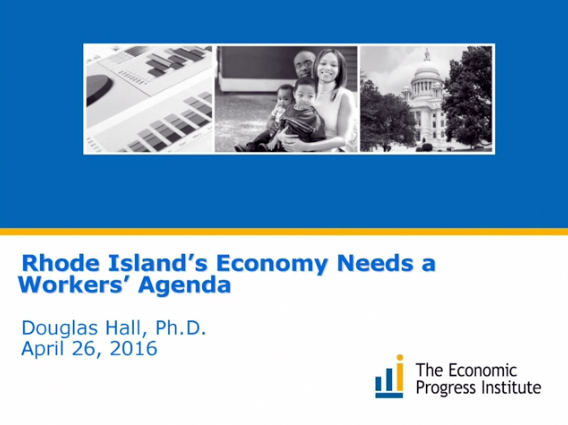
]]>
 On Friday it was reported in the Providence Journal that Speaker Mattiello’s budget priorities include reducing the estate tax by increasing the threshold for paying the tax from $1.5 to $2 million at an estimated cost of $4.3 million, as well reducing the corporate minimum tax from $450 to $400 at an estimated cost of $3.2 million. Reducing the estate tax and corporate minimum tax will provide little benefit to the overwhelming majority of Rhode Islanders and are not a good use of public funds.
On Friday it was reported in the Providence Journal that Speaker Mattiello’s budget priorities include reducing the estate tax by increasing the threshold for paying the tax from $1.5 to $2 million at an estimated cost of $4.3 million, as well reducing the corporate minimum tax from $450 to $400 at an estimated cost of $3.2 million. Reducing the estate tax and corporate minimum tax will provide little benefit to the overwhelming majority of Rhode Islanders and are not a good use of public funds.
“We hope that lawmakers will not reduce state revenues by over $7 million for tax changes that would benefit a handful of Rhode Islanders and businesses,” said Rachel Flum, Executive Director. “There are many wiser ways to use $6 million to support thousands of working Rhode Islander and to ensure that businesses have the workforce they need to succeed.”
 The state increased the estate tax threshold in 2014 effective January 2015, essentially increasing estates exempt from paying the tax from $1 million to $1.5 million and reducing the tax on higher income estates. The estimated revenue from the estate tax in 2014 was $43.6 million, dropping to $34.2 million in 2015, a 20% loss of revenue after the change.
The state increased the estate tax threshold in 2014 effective January 2015, essentially increasing estates exempt from paying the tax from $1 million to $1.5 million and reducing the tax on higher income estates. The estimated revenue from the estate tax in 2014 was $43.6 million, dropping to $34.2 million in 2015, a 20% loss of revenue after the change.
Further increasing the exemption to $2 million would benefit approximately 100 estates, of which 35 would not have to pay any tax at all.
In stark contrast, increasing the EITC to 15% of the federal credit, as proposed in the governor’s budget would put $4.4 million into the pockets of 83,000 working Rhode Islanders. Increasing it to 20% as proposed by bills pending in the house and senate would provide an additional economic boost of $8 million to the direct care workers, servers, salespeople and other Rhode Islanders who earn low to moderate wages. These state investments are then recycled directly into local economies.
“The estate tax is a vital tool for broadly shared prosperity,” added Douglas Hall, Director of Economic and Fiscal Policy at the Institute. “Our analysis shows there is no good public policy reason to reduce state revenue by reducing the tax that is paid by only a small number of heirs of large estates. The state’s priority should be to help struggling working families.”
One such priority is to help working families pay for child care assistance so they can enroll their young children in quality early learning programs and know that their older children are in a safe place after school. A pilot program allowing working families who are receiving child care assistance (income below 180% FPL) to remain eligible as their income rises to over twice the poverty level is set to expire in September, 2016.
As of March 2016, just over 400 children are enrolled in the pilot. Trend data since the onset of the program in October 2013 shows that the pilot has allowed parents to have a glide path to earning higher wages since around half of the families have income between 200 and 225% FPL and half have income between 180 and 200% FPL. It is estimated that making this “exit income” permanent would cost $1.6 million for FY 2016, an investment that not only helps working families but supports the child care sector. And with the lowest eligibility limit for child care assistance in New England, policymakers should also consider increasing the “entry income limit” from 180% FPL to at least 200%.
Just as there are far wiser ways to invest in our workforce, there are wiser ways to help businesses. The Statistics of Income for 2014 shows that 91% of Rhode Island businesses paid the minimum corporate tax, including 8,000 companies with gross receipts that total more than $10 million. Last year companies were given a break – a reduction of the minimum corporate tax by $50, from $500 to $450, taking revenue the state needed to pay for the public services and infrastructure that businesses use and rely on. Another $50 reduction is unlikely to significantly impact individual businesses, while a $3 million investment in workforce training for the 83,000 Rhode Islanders who lack a high school diploma and/or are in need of English language services would benefit all businesses who are looking for workers with basic skills.
]]>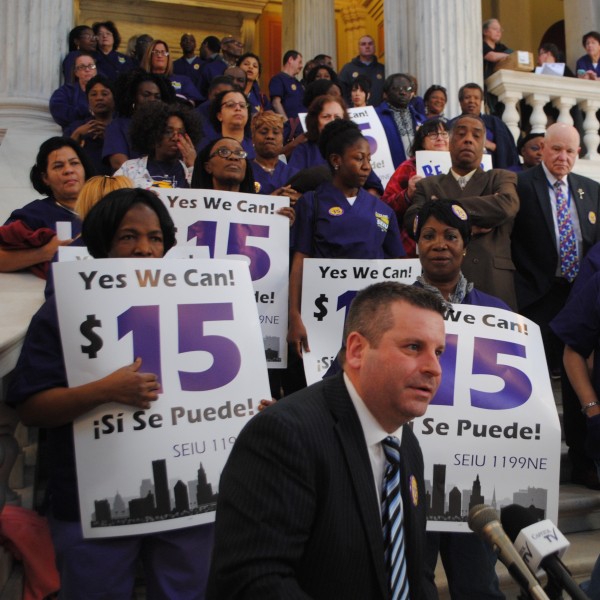
Last year, the General Assembly and the governor took an important first step to help thousands of working families make ends meet by increasing the state’s Earned Income Tax Credit (EITC) — a tax benefit for workers earning $50,000 or less — to 12.5 percent of the federal credit.
As the Ocean State strives to become a place where all families can enjoy our natural beauty while maintaining affordable housing, nutritious food, and a quality education, a further increase to the state’s Earned Income Tax Credit is a common-sense tax policy we should all rally behind. An increased state EITC means 83,000 Rhode Island taxpayers are rewarded for working hard to keep their families afloat.
That is why, for the second consecutive year, we have introduced legislation in the House and Senate to further increase the state EITC to 20 percent of the federal credit. With our legislation, a family qualifying for the maximum EITC will receive a tax credit worth up to $1,248—a significant amount for our struggling working families.
Massachusetts and Connecticut have adopted the refundable state EITC as smart policy to support working families, with refundable credits of 23 percent and 27.5 percent, respectively.
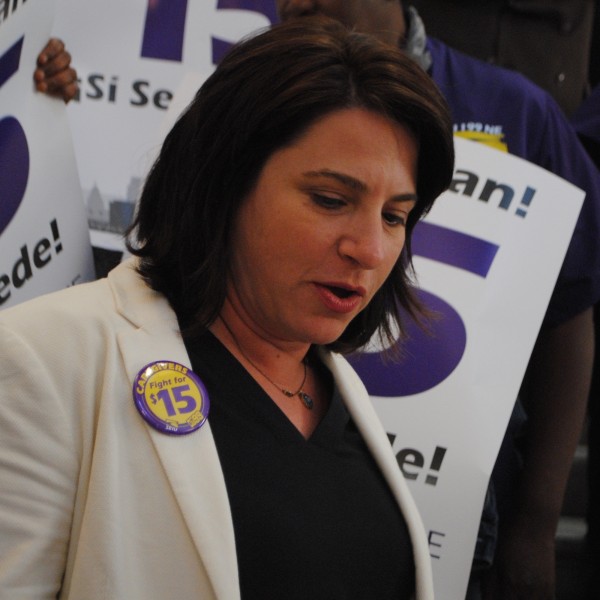
The paychecks of too many Rhode Island workers have fallen behind and our current tax structure does not provide adequate relief. Of the 50 occupations expected to produce the most job openings by 2022, nearly one in four jobs will pay less than $11 an hour, the amount the Economic Progress Institute (EPI) finds a single adult needs to earn to meet his or her most basic needs and less than half of what a single parent of two children requires.
We all benefit from living in a state where hard work is rewarded. An increased EITC helps our workforce but it also helps our local economies. More money in the pockets of working Rhode Islanders means more money in the cash registers of supermarkets, retailers, and other local businesses. The return on investment is large. The Economic Progress Institute estimates that increasing the EITC to 20 percent would not only put $12 million in pockets of working families, but add approximately $15 million to the economy through the multiplier effect. Raising the EITC to 15 percent, as proposed by the governor, would put $4 million in the pockets of working families, and add around $5 million to the economy through the multiplier effect.
With last year’s EITC increase, the General Assembly and the governor took an important step to reduce income inequality in the Ocean State and reward our workers who are doing their best to make it in Rhode Island.
We strongly believe that if you are working, you should not be poor. Raising the minimum wage and expanding EITC is helping those who work for lower wages to get ahead. The very least we can do is increase a common-sense tax credit that helps our hardest workers make ends meet. If we do not, it saps the belief that our state is a place where hard work and persistence can lead to a better life. A state EITC increased to 20 percent of the federal credit is the smartest investment we can make. We can all profit from living in a state where hard work is rewarded, taxes are fairer, and our local businesses thrive.
]]>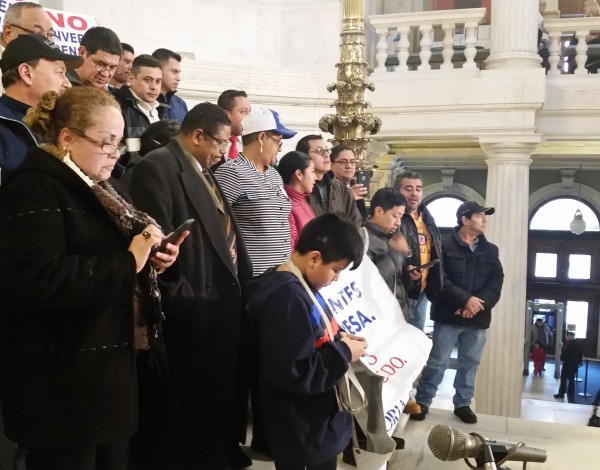 Sen. Frank Ciccone III and Rep. Anastasia Williams introduced legislation (2016-S 2333 / 2016-H 7610) that would allow the Rhode Island Department of Motor Vehicles to issue driving privilege licenses and permits to applicants unable to establish a lawful presence in the United States. The licenses and permit would not be valid for identification purposes as per the Real ID Act, but would be usable only for the purposes of operating a motor vehicle in Rhode Island.
Sen. Frank Ciccone III and Rep. Anastasia Williams introduced legislation (2016-S 2333 / 2016-H 7610) that would allow the Rhode Island Department of Motor Vehicles to issue driving privilege licenses and permits to applicants unable to establish a lawful presence in the United States. The licenses and permit would not be valid for identification purposes as per the Real ID Act, but would be usable only for the purposes of operating a motor vehicle in Rhode Island.
“We need to ensure that all drivers, regardless of their immigration status, are trained, tested and insured when driving on our roads,” said Ciccone at the press conference to highlight this legislation, “This is a safety issue as well as an economic issue. If the worst was to happen and an accident occurs involving an undocumented person driving, our residents and businesses are protected far better if this legislation is enacted as opposed to the current status quo.” (See the full video of the press conference below.)
Under the rules proposed by Ciccone and Williams, those wanting these licenses and permits would have to have no felony convictions, have lived in Rhode Island for two years and provide proof that they have paid taxes.
 As for taxes, a report from the Economic Progress Institute (EPI) demonstrates that “Undocumented immigrants contribute more than $11.6 billion to state and local coffers each year, including $33.4 million in Rhode Island, according to a new study released by the Institute on Taxation and Economic Policy (ITEP).”
As for taxes, a report from the Economic Progress Institute (EPI) demonstrates that “Undocumented immigrants contribute more than $11.6 billion to state and local coffers each year, including $33.4 million in Rhode Island, according to a new study released by the Institute on Taxation and Economic Policy (ITEP).”
From the EPI press release:
“The study, Undocumented Immigrants’ State and Local Tax Contributions, also estimates that Rhode Island stands to gain $2.5 million in increased revenue under full implementation of the Obama administration’s 2012 and 2014 executive actions and by more than $7.0 million under comprehensive immigration reform.
“EPI’s Executive Director, Rachel Flum notes that “This report shows that undocumented immigrants are contributing to Rhode Island’s economy through sales, property and income taxes. State law makers should take this into account and approve policies that help these residents live safely in our state until comprehensive immigration reform at the federal level provides a pathway to legal status. Providing driver’s licenses for undocumented residents is one such policy”
“The report found that undocumented immigrants contribute $4.1 million in personal income taxes, $11.1 million in property taxes, and $18.3 million in sales and excise taxes to Rhode Island’s. These tax contributions would be larger if all undocumented immigrants were granted legal status under a comprehensive immigration reform and if President Obama’s 2014 executive action were upheld.
“‘Regardless of the politically contentious nature of immigration reform, the data show undocumented immigrants greatly contribute to our nation’s economy, not just in labor but also with tax dollars,’ said Meg Wiehe, ITEP State Tax Policy Director. ‘With immigration policy playing a key role in state and national debates and President Obama’s 2014 executive action facing review by the Supreme Court accurate information about the tax contributions of undocumented immigrants is needed now more than ever.'”
To view the full report or to find state-specific data, go to www.itep.org/immigration/.

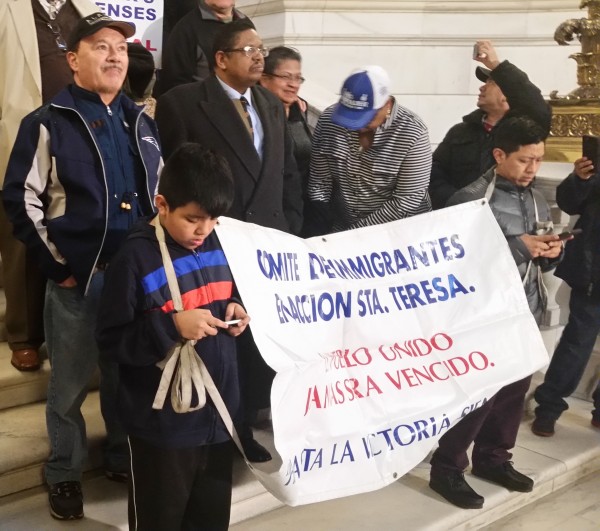
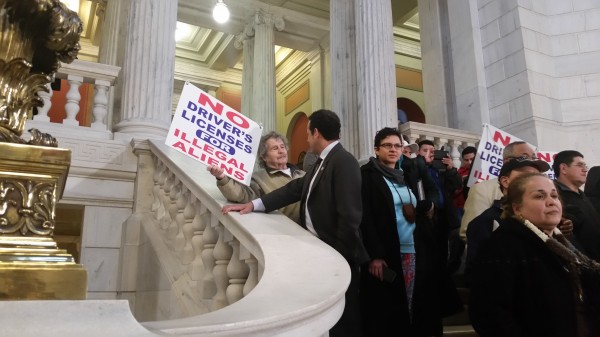

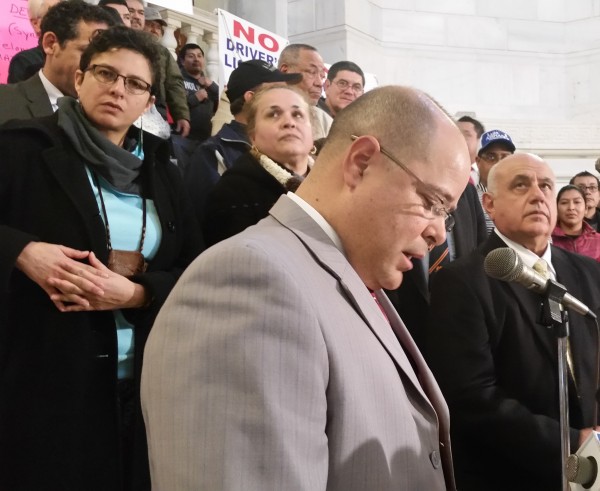
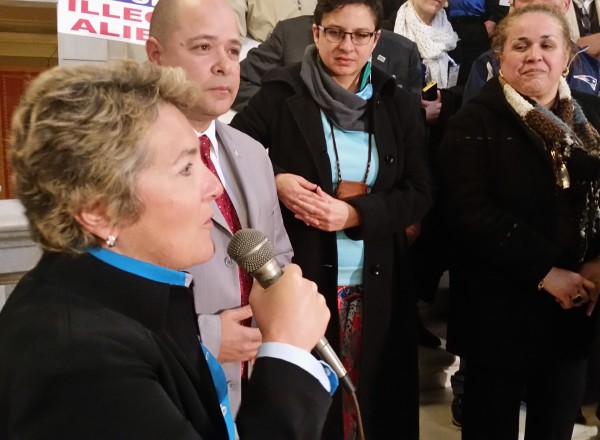
]]>
 Though the big news was that Governor Gina Raimondo announced that she would be calling of an increase in the Earned Income Tax Credit (EITC) and the minimum wage when she presents her budget during the State of the State address Tuesday evening, the press conference where this was announced was to call attention to VITA, a program to help low and modest-income Rhode Islanders file their taxes and apply for tax credits like the EITC. Raimondo said that if the budget permits, she will push that rate higher.
Though the big news was that Governor Gina Raimondo announced that she would be calling of an increase in the Earned Income Tax Credit (EITC) and the minimum wage when she presents her budget during the State of the State address Tuesday evening, the press conference where this was announced was to call attention to VITA, a program to help low and modest-income Rhode Islanders file their taxes and apply for tax credits like the EITC. Raimondo said that if the budget permits, she will push that rate higher.
Even people who have paid no taxes are eligible for EITC rebates, meaning families can receive hundreds or thousands of dollars from the government. But to do so, families must file their taxes. VITA (Volunteer Income Tax Assistance) is a program to help people file. “Appointments are highly recommended,” says the webpage on VITA at the You must also bring picture identification for both the applicant and spouse and social security cards for everyone listed on the return.” A list of VITA sites and contact info can be found here.
At the now annual press conference to advertise VITA and the EITC, Governor Raimondo announced her intention to ask that the EITC be raised to 15 percent when she presents her budget. This year the EITC was raised from 10 to 12.5 percent. Connecticut’s program is currently at 30 percent while Massachusetts has just raised their EITC to 23 percent.
The EITC “provides a tax credit and/or refund to people who earn low to moderate wages. The payment is received as part of the end-of-year tax filing period,” says the Economic Progress Institute on their website.
Representative Scott Slater and State Senator Gayle Goldin both praised the announcement that the budget will call for a 15 percent EITC, but both also noted that they have introduced bills and intend to fight to raise the tax credit to 20 percent.
The Governor also announced that she will once again be asking the legislature to raise the state’s minimum wage, which rose to $9.60 this month. Last year the legislature balked at Raimondo’s suggestion for a $10.10 and raised the wage just 60 cents, but also agreed to raise the tipped minimum wage to $3.39 this year and $3.89 next year.
Given that the General Assembly only granted slightly more than half of the minimum wage increase Raimondo included in her budget last year, perhaps the Governor should ask for more than $10.10 this year.
You can watch the relevant parts of the press conference below. The final speaker in the video speaks about the positive effects of the EITC in helping to bring her family out of poverty.
]]>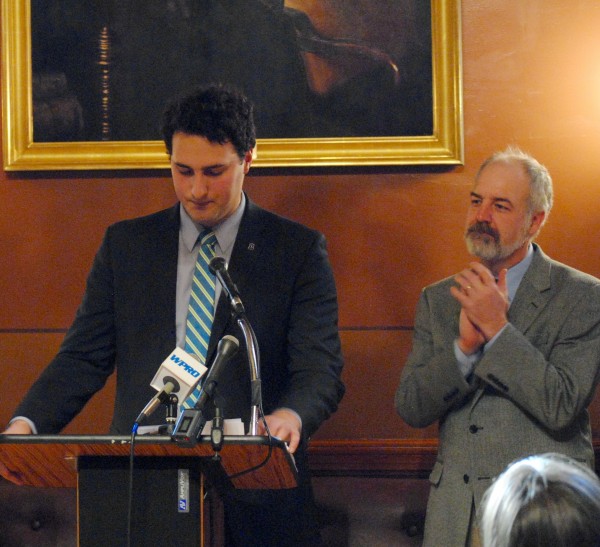 New carbon pricing legislation, backed by the Energize RI coalition, was introduced by Representative Aaron Regunberg (D District 4 Providence) in the House chamber on Tuesday. The legislation “is designed to provide incentives for renewable energy use, encourage the development of cleaner renewable energy projects, and create local jobs.”
New carbon pricing legislation, backed by the Energize RI coalition, was introduced by Representative Aaron Regunberg (D District 4 Providence) in the House chamber on Tuesday. The legislation “is designed to provide incentives for renewable energy use, encourage the development of cleaner renewable energy projects, and create local jobs.”
“The legislation would establish a new Clean Energy and Jobs Fund that will invest in renewables and efficiency and help Rhode Islanders lower their energy costs,” said Energize RI in a press release, “The Fund will be financed by a fee on carbon pollution, beginning at $15 per ton of greenhouse gas emissions, paid by the companies that sell fossil fuels in the state.”
Traditionally, user fees hit members of low income communities hardest, but Douglas Hall, Director of Economic and Fiscal Policy at the Economic Progress Institute, said that this bill addresses that problem head on and to good effect. “This bill does a few things that we at the Economic Progress Institute think are important. A portion of the carbon tax will be passed onto consumers, including lower-income families, in the form of higher prices. The Energize Rhode Island Act addresses this concern, by providing rebates to Rhode Island families and businesses, ensuring they come out ahead. We have seen the incidence analysis of this bill and are confident that lower income Rhode Islanders will be more than protected from additional costs.”
Introducing the bill, Regunberg spoke about the economic, legal and moral responsibility Rhode Island has to take on such an “ambitious legislative proposal.”
“Economically, this is where the world is moving… Rhode Island can either be a follower, and get the least economic benefit from these trends, or we can be a leader for this country.
“Legally, in 2014 we passed the Resilient Rhode Island Act, which obligated our state to reach certain emission reduction goals. Right now we are not on track to reach those goals…
“And morally, we have a responsibility to Rhode Island’s young people, to my generation and to the generations that come after mine… by failing to enact significant climate legislation, we are condemning the babies who are born today at Women and Infants to a dangerous future.”
Small business owner Joseph Fernandes saw the issue from an economic point of view. “If you were to attempt to open a business today in many parts of our state, you would find yourself facing a whole new set of barriers that didn’t exist for my parents. You would be faced with the burden of having to pay for costly flood insurance premiums that will only grow higher. Climate change means your business is always vulnerable to an extreme weather event that could permanently close you down.”
The Energize RI Coalition sees their efforts as complementary to other state programs dealing with climate and energy. Ken Filarski of Filarski Architecture said the the clean energy sector of our economy is one of the fastest growing in the state. “This sector is already growing at a rate that is stronger than the rest of Rhode Island’s economy, supporting over 10,000 jobs and adding 1,600 more by the end of the year. Passing this legislation means more funds to install solar panels, insulate houses, and implement other energy efficiency measures. It means more Rhode Islanders working in a field that has proven itself to be both profitable and sustainable.”
More details from the press release:

“An economic impact study by Regional Economic Models, Inc. (REMI) estimated that the legislation would create a net growth of 1,000 to 2,000 new jobs in just the first two years of the program. It also noted that Rhode Island spends more than $3.1 billion annually on fossil fuels, nearly all of which flows out of the state, since Rhode Island does not produce these fuels itself. Incentivizing Rhode Islanders to switch from out-of-state fossil fuel sources to local renewables and efficiency will help keep more of that money in Rhode Island and protect the state from the volatile market swings that often affect these fuel prices.
“The legislation establishes that 25 percent of the fees collected for the Clean Energy and Jobs Fund would be used for climate resilience, energy efficiency, energy conservation, and renewable energy programs, to be administered by the state infrastructure bank created through legislation last year. Thirty percent would be used to provide direct dividends to employers in the state per full-time employee, and 40 percent would be used to provide direct dividends for every single state resident. Employees and residents would receive their funds via tax credits, or direct checks for those not required to file taxes.
“According to the coalition’s research based on average energy use data, the program will not increase energy costs for the average Rhode Island family and businesses In fact, by paving the way for a transition to an energy independent economy, the policy will reduce costs for all Rhode Islanders in the long term. In the short term, the average Rhode Island household receives a net gain from the rebate. Even higher-income households will have an average net cost of only $25 per year toward the Clean Energy and Jobs Fund.”
Energize RI is a coalition of advocates from business, environmental and faith communities. Speaking from a faith perspective was Beth Miham, a member of Channing Memorial Church in Newport and a former board member of Interfaith Power and Light for a number of years.
]]>